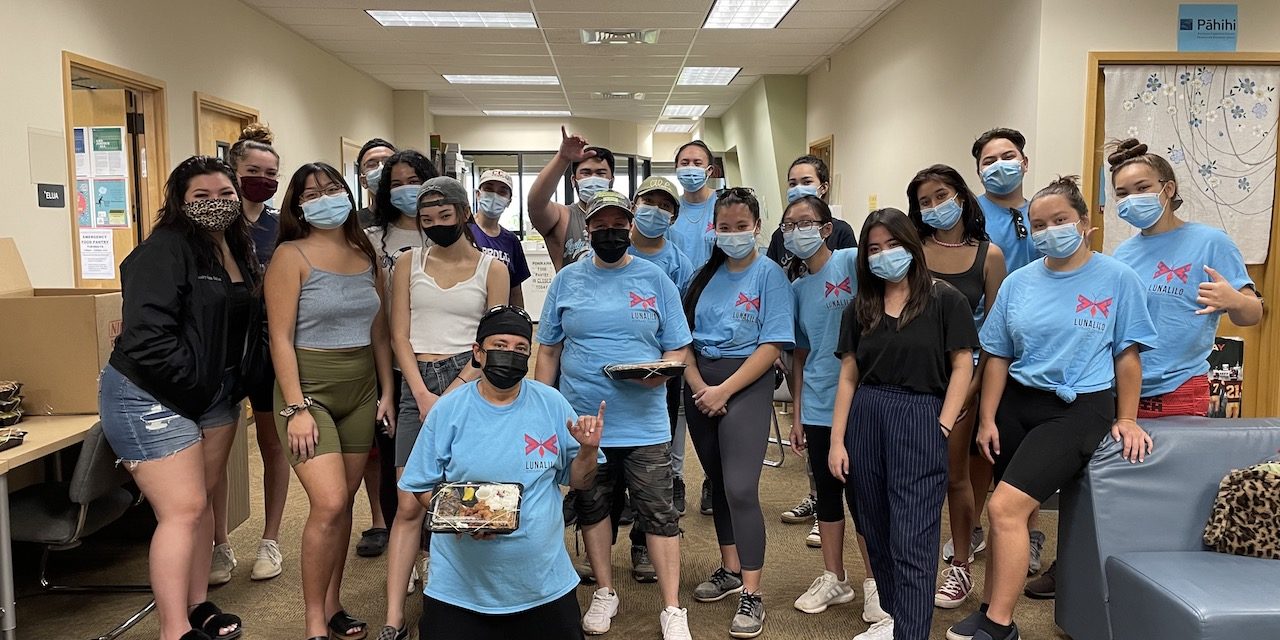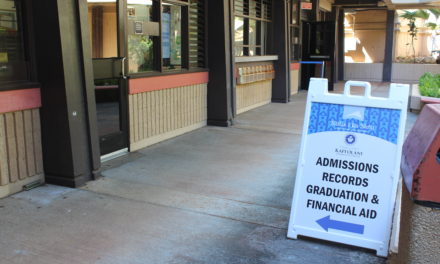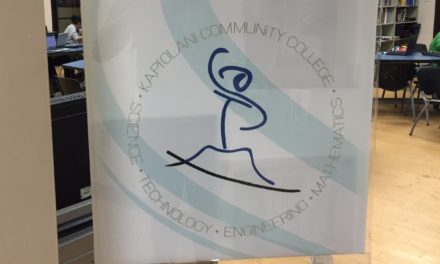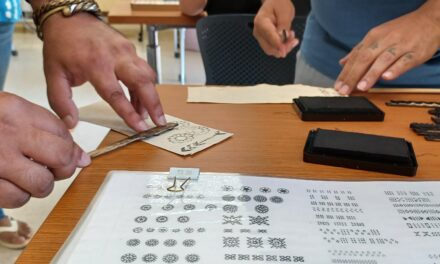By Keahi Akina | Staff Writer
This year, more than 50 students are able to attend Kapiʻolani Community College for free through the Lunalilo Scholars program. They receive mentorship, college success resources, funding, and a community of peers. For the next four years the goal is to fund as many 76 scholars a year through a $1.2 million pledge from the Kaneta Foundation. This is their largest pledge to date for Lunalilo Scholars.
“It’s a four-year grant from the Kaneta Foundation and we do have single donors yearly that contribute enough for like one scholar, and it all goes into the same fund, but the Kanetas have maintained the highest contributor to the scholarship program,” said LaVache Scanlan, the director of the Lunalilo Scholars.
The scholars program started in 2012 as a scholarship collaboration between Kapiʻolani Community College and the Kaneta Foundation. The Kaneta Foundation has a particular interest in funding education and has done so through KCC as well as foundations like the Hawaiʻi Community Foundation (HCF).
Lunalilo Scholars is a first-year program at KCC. It was modeled after the Waiʻaleʻale Project at Kauaʻi Community College. The idea is to get the scholars, who are typically underserved (nearly 60% are Hawaiian, over 10% are Pacific Islander), into and through their first year of college successfully. Just one year of experiencing college can have a long-lasting impact.
Scanlan has been the director of the Lunalilo Scholars Program since it started in 2012. She has worked with the Kaneta Foundation from the beginning. The first year, the Kanetas were willing to give enough money to fund up to 25 scholars as a test run. They were able to connect with 20 students who joined and completed the program. According to Scanlan, a member of the first cohort is currently pursuing a doctorate in Oregon.
“I’ve been at KCC for a long time, so I knew what were those best practices that needed to happen and also the Kaua’i program had success and had similar ideas so they were very helpful,” said Scanlan.
During that first year the Kanetas had a chance to meet the students who they were funding face-to-face. It gave the students a chance to thank the Kanetas and to relay their personal stories. The Kanetas were impressed by the way that these scholarships had impacted those students and proceeded to gift KCC $700,000 to be used over four years to continue the program and increase the size of the cohort.
The Kanetas and Lunalilo’s administration are partners in pursuing opportunities for additional funding as well. Their goal is always to increase the number of students that receive support through Lunalilo Scholars.
While the Lunalilo Scholarship ends after the first year, scholars are able to apply for scholarships as peer mentors of successive cohorts. Funding for these second-year scholarships comes from the T.C. Ching foundation.
This year, which marks the 10th cohort of Lunalilo Scholars, there are 55 scholars and 18 mentors. Mentors can expect to have any number of jobs in the program. Some of them work closely with students and participate in their college success courses, which are offered to and for the scholars. The hands-on assistance is followed by weekly check-ins with these mentors.
Some mentors manage the social media for Lunalilo Scholars or they assist with community projects such as Mālama ʻIliahi. Mālama ʻIliahi is an initiative under Lunalilo Scholars that encourages and engages them once a month to clean up the area around ʻIliahi, the location of Lunalilo Scholars’ offices.
“Our students typically do better than the average first-year student, so what we have been doing at Lunalilo is kind of informing what we’re trying to do in the first year as well,” said Scanlan. These include weekly check-ins and mentoring opportunities. Summer bridge programs and college success courses like those available to scholars are also initiatives that Scanlan would like to extend toward other first-year students.
Challenges presented by the Covid-19 pandemic have decreased the number of enrolled scholars because the Lunalilo Scholars were unable to engage directly with high schools and other outreach programs. However, both the Kanetas and the Lunalilo Scholars are confident that the program will continue to be successful in engaging with and funding students for years to come.






